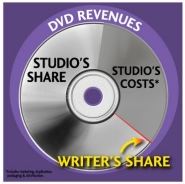Congratulations on [Big Fish](http://imdb.com/title/tt0319061/combined). I have a silly question concerning the “Confederated Products” throwaway about halfway through that movie. Since that’s a reference to your previous work, rather than [Tim Burton’s](http://imdb.com/name/nm0000318/), how did it get there? That is, did you include it in the script, or did someone else suggest it?
–Patrick Bowman
For those who don’t know the reference, “Confederated Products” is the Amway-like company that serves as a major punchline in the third part of [Go](http://imdb.com/title/tt0139239/). Originally, the company was supposed to be American Products, but the legal department couldn’t get clearance on the name. I had to submit a list of alternatives, and Confederated Products was the best one that checked out okay.
Since then, I’ve tried to use Confederated Products in every project. (Likewise, I also try to use [Melissa McCarthy](http://imdb.com/name/nm0565250/), who is similarly terrific and versatile.) I just write “Confederated Products” into the script and hope no one tries to change it. Generally, they don’t. After Go, Big Fish is the biggest use of the brand name, but it was also used in the first [Charlie’s Angels](http://imdb.com/title/tt0160127/) — though I’m not sure you can see it.
I’ve always been a big fan of giant, insidius imaginary corporations such as Acme or Weyland-Yutani. I registered [ConfederatedProducts.com](http://confederatedproducts.com) just so I could be sure to have the name for future projects.

 A recent campaign by the WGA East does a graphical breakdown of the numbers, but let’s take Big Fish as an example. According to Video Business, its MSRP is $28.95, but most people will pay less than that. Let’s say $20, which is what you’d pay on Amazon. And Amazon is still pulling a 25% markup at that price; it buys the DVD wholesale at $16.
A recent campaign by the WGA East does a graphical breakdown of the numbers, but let’s take Big Fish as an example. According to Video Business, its MSRP is $28.95, but most people will pay less than that. Let’s say $20, which is what you’d pay on Amazon. And Amazon is still pulling a 25% markup at that price; it buys the DVD wholesale at $16.